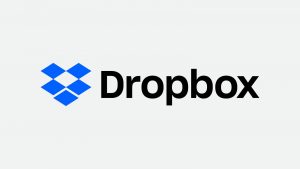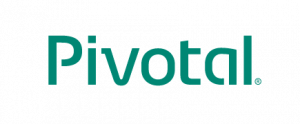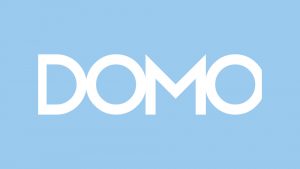In the past several years, SaaS companies have accounted for the majority of software IPOs in the U.S. And in 2018, the trend strengthens. Investors are feeling confident about the subscription business model and the value of the SaaS market, which is expected to reach $55 billion in 2018 and $75 billion by 2020.
Here’s 10 of the most exciting, newly public SaaS companies for 2018:
1. Zscaler
Exchange: Nasdaq
Ticker Symbol: ZS
IPO Date: March 16

Zscaler provides software-defined perimeter (SDP) services through a security cloud which routes all internet traffic from a company’s computers, laptops and mobile devices through global data centers. The data centers act as a firewall, applying security policies, managing data leakage, and shielding servers from attacks.
They made an IPO splash with an initial offer of $16/share that shot up 106% to $33 on the first day of trading. While the company hasn’t yet turned a profit, it posted 57% year over year revenue growth in 2017.
Impressive sales, high demand for cyber security and enthusiasm for cloud solutions drove its performance and set the tone for strong SaaS IPOs in 2018.
2. Dropbox
Exchange: Nasdaq
Ticker Symbol: DBX
IPO Date: March 23

Dropbox’s IPO followed close on Zscaler’s success. Dropbox offers cloud storage, file synchronization, document management and file sharing for individual and businesses.
Over 90% of its $1 billion in revenue comes from individual subscriptions, but to prepare for going public, Dropbox beefed up its enterprise customer portfolio and launched an integration with Salesforce.com.
Shares initially priced at $21 closed up 36% at $28.48 on the first day of trading, raising $756 million.
3. Zuora
Exchange: NYSE
Ticker Symbol: ZUO
IPO Date: April 12
![]()
Zuora’s SaaS billing applications automate invoicing, commerce and finance operations. It targets companies who need to manage subscription payments, pricing, product catalogs and tax payments.
Prior to going public, Zuora reported 95 million subscribers and robust revenue growth. Investors approved, boosting the initial offering of $14 per share up 43% to $20 on the first day of trading. On the strength of $154 million raised, the company plans to focus on more direct enterprise sales in the U.S.
4. Pivotal Software
Exchange: NYSE
Ticker Symbol: PVTL
IPO Date: April 20

Pivotal Software hosts a SaaS development environment called Pivotal Cloud Foundry, in which software developers or IT departments can create, test, deploy and manage their own cloud-based applications.
Pivotal serves companies who want to blend their on-premise infrastructure with cloud-based applications and data storage. And they’ve seen early success, growing subscriptions in 2017 by 73%.
Dell Technologies owns 70% of Pivotal, which may have dampened enthusiasm for its IPO. Shares offered at $15 closed up just 5% on the first day of trading.
5. Docusign
Exchange: Nasdaq
Ticker Symbol: DOCU
IPO Date: April 27

Docusign offers electronic signature and digital transaction management services, which allow businesses and individuals to collect verifiable signatures for electronic documents. It also provides authentication services, user identity management and workflow automation.
The company was founded in 2003 but saw slow growth until around 2012 when it started marketing to larger enterprises. Last year, the customer base grew 25% to 40,000.
Docusign went public with an initial offering of $29 per share. Shares stood 37% higher at the end of trading for a final total of $629 million raised.
6. Smartsheet
Exchange: NYSE
Ticker Symbol: SMAR
IPO Date: April 27
 Smartsheet SaaS project management software facilitates task assignment, calendar sharing and document sharing in spreadsheet-like format. CEO Mark Mader characterizes its product as a better way to manage projects and team work than “constantly jamming everything inside of Microsoft Excel or Google Docs.”
Smartsheet SaaS project management software facilitates task assignment, calendar sharing and document sharing in spreadsheet-like format. CEO Mark Mader characterizes its product as a better way to manage projects and team work than “constantly jamming everything inside of Microsoft Excel or Google Docs.”
As of 2016, the company boasted 10 million users at 85,000 organizations. Its IPO capitalized on those results. Shares initially priced at $15 rose 30% on the first day, raising $150 million.
7. Carbon Black
Exchange: Nasdaq
Ticker Symbol: CBLK
IPO Date: May 4
![]()
Carbon Black’s Cb Predictive Security Cloud prevents hackers from accessing company data via connected devices, like laptops, tablets or mobile phones. The SaaS security application tracks unfiltered operating system events from each device and uses data analysis to identify suspicious behaviors, remediate breeches and shield against attacks.
Founded in 2002, Carbon Black did not move to cloud based solutions until 2016. But the Predictive Security Cloud has spurred recent growth, bringing in 1600 of the company’s 3700 customers as of 2017.
Carbon Black’s IPO raised $152 million. The stock, originally offered at $19, bumped to $23.94 at the end of the first trading day.
8. Avalara
Exchange: NYSE
Ticker Symbol: AVLR
IPO Date: June 15
![]()
Avalara SaaS applications calculate taxes, prepare and file returns, and manage tax certificates for businesses. They tally sales and use, excise and communications taxes with integrations to Amazon, Quickbooks, Oracle, Workday and Stripe. The software handles 6 billion transactions a year.
In the last few years, the company’s costs have increased around 19% but revenue has grown at a much higher rate, and Avalara plans to continue scaling by increasing the average revenue per customer.
Investors demonstrated their faith in the business model at the June 15 IPO. The company priced shares at $24 and saw a huge pop of 87%, closing the first day at $44.94.
9. Domo
Exchange: Nasdaq
Ticker Symbol: DOMO
IPO Date: June 29

Utah-based Domo has developed a SaaS business management platform that connects to existing company information sources, merges the data and presents it as an executive dashboard.
Domo faces uphill competition from companies like Microsoft, Oracle and IBM. But it had a reasonable public debut. Shares initially priced at $21 closed trading at $27.30 on the first day for a total gain of $193 million.
10. SurveyMonkey
Exchange: Nasdaq
Ticker Symbol: SVMK
IPO Date: September 26
![]()
Founded in 1999, Survey Monkey is one of the oldest companies to go public this year. Its subscribers use the SaaS market research tool to design, target, conduct and analyze surveys. The company also offers data analysis, bias elimination and data presentation tools.
The company has mostly grown organically by converting users from its free introductory plan to subscriptions. In fact, 80% of its paying customers come from organic online search or the company website.
2017 saw 5% growth year over year with losses reduced from $76 million to $24 million. Investors appreciated the strong track record, boosting shares from $12 to $17.24 on the first day of trading for a haul of $180 million.



